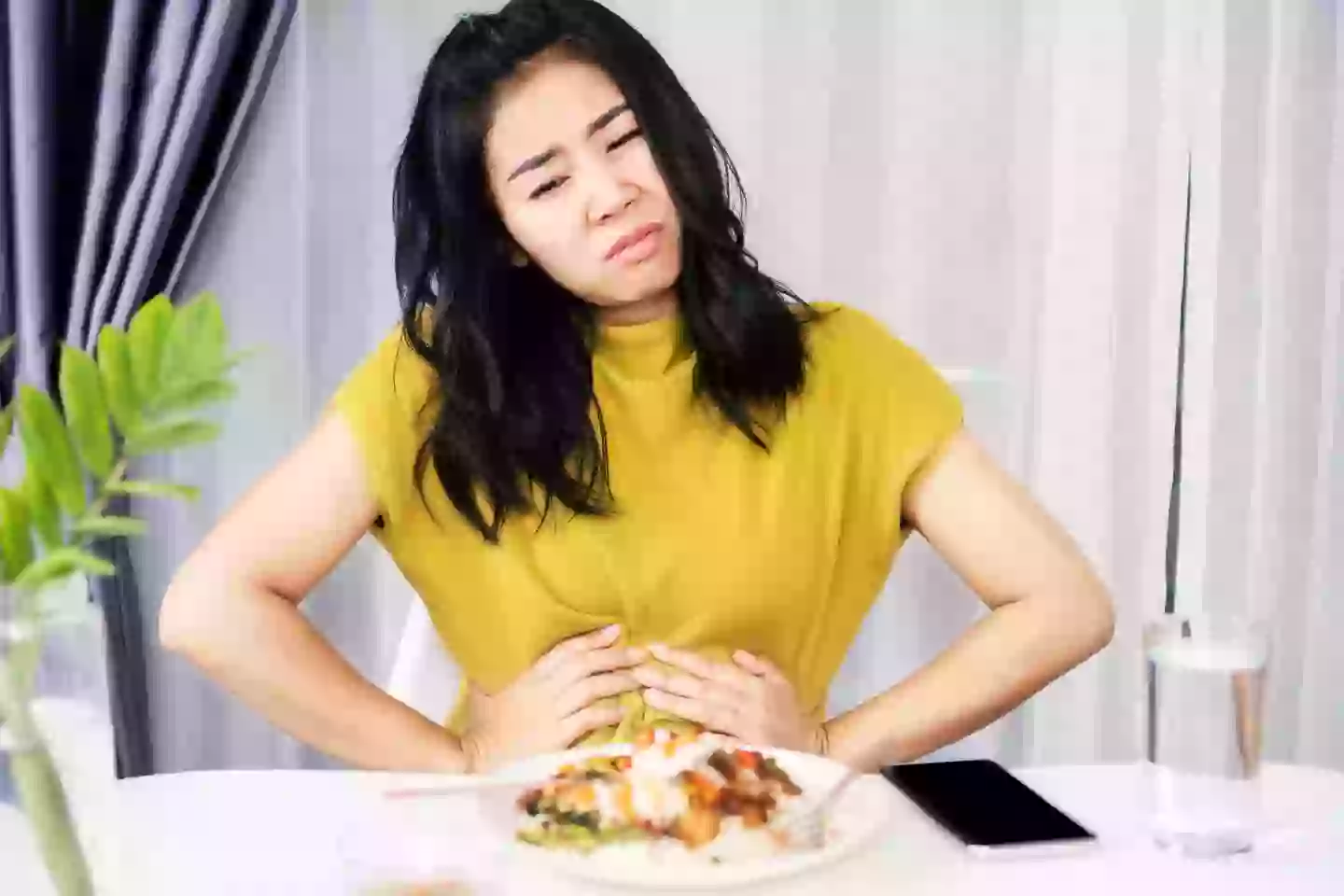.webp)
Whilst the time it takes after eating to experience the need to poop can vary greatly from person to person, one GP says that immediately needing the bathroom afterwards can be a cause for concern.
Taking to TikTok, Dr Joseph Salhab not only lifted the lid on the reason why this sensation might be occurring, but the ways to handle it if you are a sufferer.

Advert
As we say, the strength and speed of bowel movements depends on the person, with factors such as their gut health, chronic conditions and the types of meals being digested having an impact.
That said, however, the general consensus amongst medics is that it tends to take between 15 to 90 minutes on average after eating for a person to feel like they need the toilet.
This isn't because the most recently-consumed meal has somehow flown through the body as it takes an average of six to eight hours for food to pass through your stomach and small intestine.
If you're someone that suddenly feels the urge to go number two immediately after consuming a meal, however, this isn't considered normal.
Advert
According to one social media-using medic, whilst this rarity can be somewhat concerning, he says it's totally involuntary.
Taking to TikTok recently, Dr Joseph Salhab began his lecture by comforting his vast following: "Do you have to poop immediately after you eat? If this happens to you then you're not alone."
.jpg)
The doc went on to explain that, in the vast majority of these cases, it's not because the food you've just eaten is moving 'instantly through your GI tract' - a supposedly common and incorrect assumption.
Advert
Instead, he said the urge relates to brain function.
"When you eat and you feel like you have to use the restroom right after, this is something called the gastrocolic reflex," Dr Salhab added.
He went on to explain that, when the stomach begins to expand after eating, a signal is inadvertently sent to the colon to contract, so as to 'make room for the food'.
And being that the colon stores both poop and water, if it receives this subconscious demand, it can begin to push out old digested food and fluids.
Advert
Dr Salhab added that some people are particularly sensitive to this involuntary brain reflex, and these individuals are often amongst those diagnosed with the likes of irritable bowel syndrome and other digestive-related ailments.
"If this causes a problem for you then some of the things that you can do is adhere to a low FODMAP diet which can give you a list of foods that may be causing your problems," he continued, pledging to help those suffering with the often uncomfortable habit.
Advert
"Other things you can try and do is avoid carbonated beverages, high sugary drinks, alcohol, certain citrus foods, sometimes dairy as well, and fried or fatty foods."
So as not to panic his fans, Dr Salhab noted, however, that every person's body works differently, so what he recommends for one individual may not be affective for another.
As a general rule of thumb, he emphasised the importance of tracking the types of food you're eating and the ways that it impacts your body, so you know what causes flare-ups and prompts the urge for a speedy number two.
And by the sounds of fan comments, the GP's advice is already coming in handy.
"A low fodmap diet was the answer to my prayers after more than 10 years of having ibs with diarrhea," one viewer penned.
"Avoiding the foods that causes it is definitely worth it.
Another added: "I did the low fodmap diet. it helped a lot!"
Topics: Food and Drink, Health, Life, Real Life, True Life